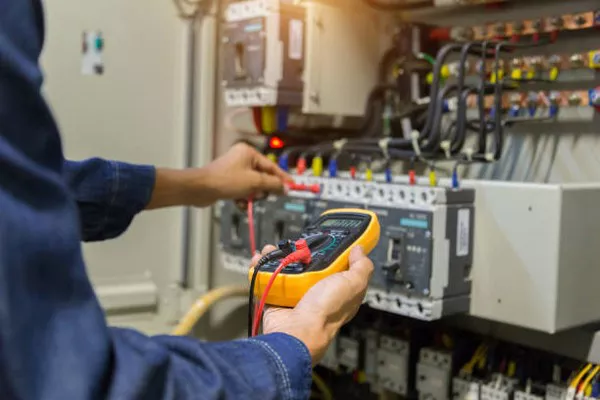Fire safety is paramount in any environment, especially where electrical equipment is present. When it comes to extinguishing fires involving electrical components, choosing the appropriate fire extinguisher is critical. Using the wrong type of extinguisher can exacerbate the situation, causing further damage or even putting lives at risk. In this guide, we’ll delve into the types of fire extinguishers suitable for electrical fires, their classification, and key considerations for selecting the right one.
Understanding Fire Classes
Before delving into the specifics of fire extinguishers for electrical equipment, it’s essential to understand the classification of fires. Fires are categorized into different classes based on the materials involved. The classification system helps in determining the most effective extinguishing agent for a particular type of fire. The classes are as follows:
Class A: These fires involve ordinary combustible materials such as wood, paper, cloth, and plastics.
Class B: These fires involve flammable liquids like gasoline, oil, grease, and solvents.
Class C: These fires involve energized electrical equipment, including appliances, wiring, fuse boxes, and circuit breakers.
Class D: These fires involve combustible metals such as magnesium, titanium, potassium, and sodium.
Class K: These fires involve cooking oils and fats, typically found in commercial kitchens.
For fires involving electrical equipment (Class C), it’s crucial to use extinguishing agents that do not conduct electricity to avoid the risk of electric shock or further damage to the equipment.
Types of Fire Extinguishers for Electrical Fires
Several types of fire extinguishers are suitable for combating electrical fires. These extinguishers utilize different extinguishing agents to effectively suppress the flames without conducting electricity. The most common types include:
Carbon Dioxide (CO2) Fire Extinguishers: CO2 extinguishers are highly effective for Class C fires involving electrical equipment. They work by displacing oxygen, suffocating the fire. Since CO2 is a gas, it does not leave any residue, making it ideal for use on sensitive electrical equipment. However, caution should be exercised as CO2 can cause rapid temperature drops, potentially damaging certain materials or components.
Dry Chemical Fire Extinguishers (ABC or BC): Dry chemical extinguishers are versatile and can be used on multiple fire classes, including Class C fires. They contain a fine powder that interrupts the chemical reaction of the fire, suppressing the flames. While effective, dry chemical extinguishers can leave behind a residue that may be harmful to sensitive equipment if not cleaned promptly.
Clean Agent Fire Extinguishers: Clean agents, such as Halon replacements like HFC-227ea (FM-200) or HFC-236fa (FE-36), are suitable for Class C fires. These extinguishers work by chemically interrupting the combustion process without leaving residue or causing thermal shock. Clean agent extinguishers are particularly useful in areas where minimal cleanup or damage is desired, such as server rooms, data centers, and laboratories.
Water Mist Fire Extinguishers: Water mist extinguishers discharge microscopic water droplets, which evaporate quickly upon contact with the fire. This process helps to cool the flames and suppress the fire without conducting electricity. Water mist extinguishers are safe for use on Class C fires and are suitable for environments where water damage or residue is a concern.
Wet Chemical Fire Extinguishers: While primarily designed for Class K fires involving cooking oils and fats, wet chemical extinguishers can also be used on Class A, B, and C fires to a limited extent. These extinguishers contain a special agent that reacts with cooking oils to form a soapy substance, smothering the fire. However, caution should be exercised when using wet chemical extinguishers near electrical equipment to avoid the risk of electrical conductivity.
Key Considerations for Selecting the Right Extinguisher
When choosing a fire extinguisher for electrical equipment, several factors should be considered to ensure effective fire suppression and minimal damage:
Type of Electrical Equipment: Consider the specific type of electrical equipment present in the area. Some equipment may be more sensitive to certain extinguishing agents or residue than others.
Risk of Electrical Conductivity: Select extinguishing agents that do not conduct electricity to avoid the risk of electric shock or further damage to the equipment.
Environmental Concerns: Take into account any environmental or safety concerns associated with the extinguishing agent, such as ozone depletion potential (ODP) or global warming potential (GWP).
Cleanup and Residue: Consider the cleanup requirements and potential residue left behind by the extinguishing agent. Choose agents that minimize damage to equipment and require minimal cleanup.
Training and Accessibility: Ensure that personnel are adequately trained in the proper use of the selected extinguisher and that it is easily accessible in the event of a fire.
Regulatory Compliance: Verify that the chosen extinguisher complies with relevant fire safety regulations and standards applicable to your industry or jurisdiction.
See Also What Type Of Testing On Electrical Equipment
Conclusion
Selecting the right fire extinguisher for electrical equipment is essential for effective fire suppression and minimizing damage. By understanding the classification of fires and the characteristics of different extinguishing agents, you can make an informed decision to ensure the safety of personnel and protection of valuable assets. Regular inspection, maintenance, and training are also crucial aspects of fire safety management to ensure the readiness and effectiveness of fire extinguishers in the event of an emergency.

